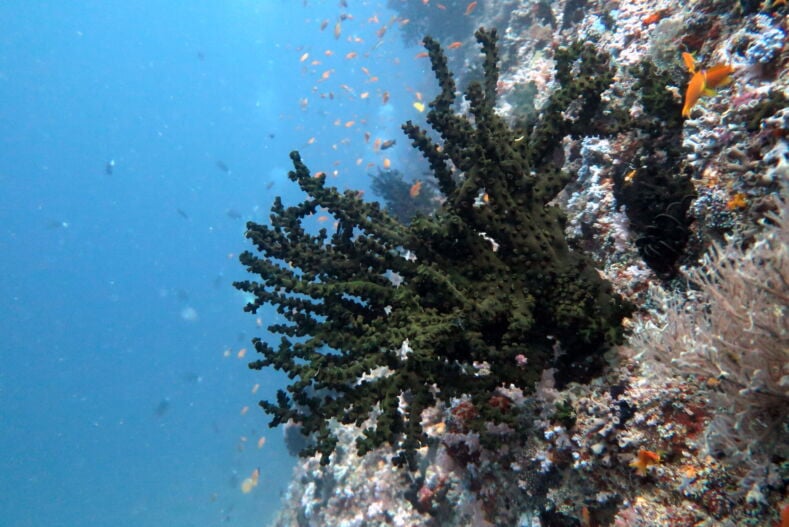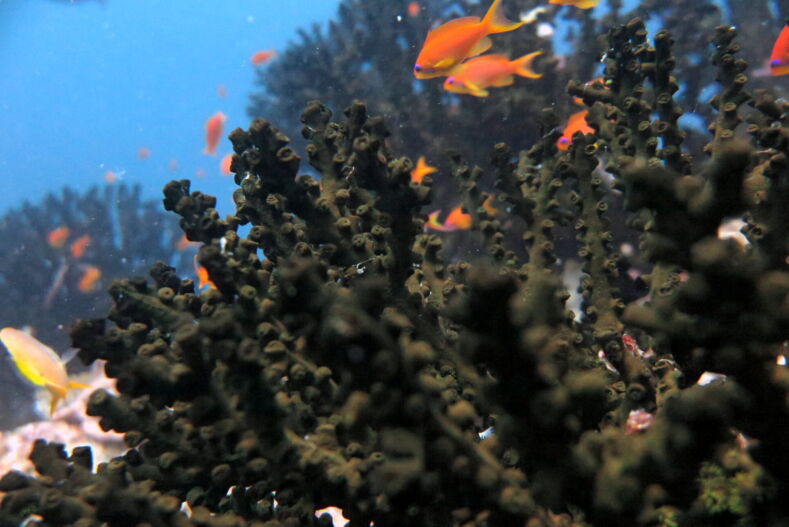What if we told you that there are corals on our reef that are not susceptible to bleaching? If you’ve spent any time with our marine biologists at all, you will probably know by now that most corals get a large percentage of their food from the algae that inhabit their tissues. In this carefully constructed arrangement, the algae donate some of the sugars they produce through photosynthesis to the coral animal in exchange for housing. You may also recall that environmental stressors (such as increased temperatures) can cause the coral to expel these algae in a process called coral bleaching.

Introducing the Black Sun Coral (AKA Tubastrea micranthus), which is not photosynthetic meaning it doesn’t have a symbiotic any algae. It will therefore not bleach when temperatures get too high! Black Sun Coral, or sometimes just ‘black coral’ is actually a shade of dark green and often has fluorescent tentacles and mouths when seen under UV light. They catch all of their own food (mainly plankton) at night with their tentacles as opposed to receiving most of their energy from the symbiotic algae within their tissues like most other corals.

So what does this mean for the future of coral reefs? Considering that corals have been around for millions of years, they have seen all kinds of extreme climatic events and some will have been able to adapt to these new environmental conditions over the millennia. Not adapting meant extinction, and inevitably, new species will have appeared over time as well. Since the rate of climate change is unprecedented it is unclear whether the corals we know today will be able to adapt fast enough. It is quite likely that the coral landscape will slowly morph overtime, and will perhaps include new coral species that are non-photosynthetic. Time will tell!